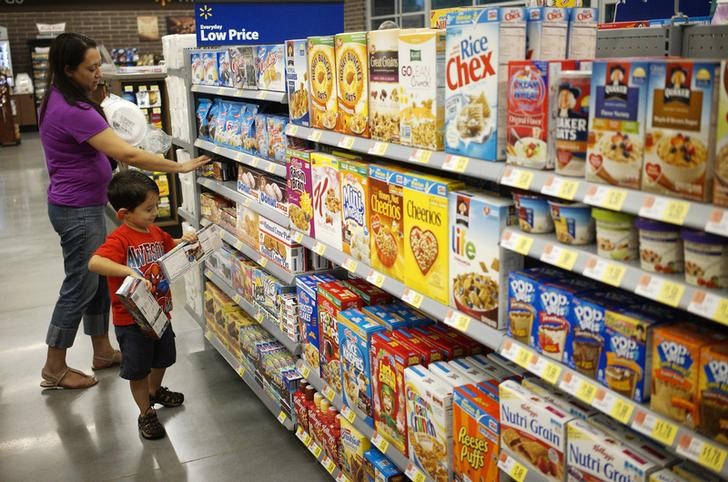(Bloomberg) -- We’re tracking the latest on the coronavirus outbreak and the global response. Sign up here for our daily newsletter on what you need to know.
Logistical hurdles stemming from the coronavirus pandemic are starting to pile up, hampering the flow of food that’s otherwise plentiful in warehouses worldwide and boosting crop prices.
Wheat futures capped the longest streak of gains since June on Monday, while prices for soybeans and coffee also climbed. In Asia, Thai rice export prices are trading at the highest since 2013.
In Argentina, a union representing about 7,000 soybean crushers is threatening to strike over contagion fears, while port workers in agricultural giant Brazil were set to vote on a stoppage Monday before suspending the assembly at the last minute.
A Canadian trucker group is flagging an “imbalance” in the supply chain, and there are concerns over a shortage of coffee-pickers in Central and Latin America.
That shows how the complicated and fragile supply chain that makes it possible to feed the world is coming under strain as the virus spreads and governments take unprecedented and drastic lockdown measures to contain the pandemic. It also points to the potential difficulties in getting food to where it need to be even when supply is plentiful.
It takes the resources and labor of warehouse workers, truckers, rails, ships, ports, grain terminals and production plants to ensure that food can make it from farm to table, all of which is now being disrupted. Grocery store shelves are running empty as consumers take to frenzied buying, and crop prices are starting to climb -- a possible harbinger of food inflation.
“There’s an unprecedented demand on the food chain. Our eating habits are totally different,” said Mike Johanns a former Nebraska governor and senator who also served as secretary of the U.S. Department of Agriculture. “This pressure is going to continue.”
With consumers across the globe being encouraged to stay home as much as possible, demand is skyrocketing for pantry staples such as wheat and rice. Flour-based products are among the supplies being scooped up as people turn to comfort foods and stay home from work and school.
At the same time, nations are taking steps to secure domestic food supplies. Russia is starting to restrict exports of some foods. China, the world’s biggest producer and consumer of rice, has revamped its pricing policy for the staple, and pledged to buy a record amount from this year’s harvest.
Some North American meat processors are offering plant workers bonuses as their already-grueling jobs become even more critical amid the coronavirus threat.
There’s Plenty of Food in the World, Just Not Where It’s Needed
Food importers are also stepping in to ensure supply. The U.S. last week reported China booked 340,000 metric tons of U.S. tons of hard red winter wheat and made its largest one-day corn purchase of American corn in seven years. Key wheat importers including Algeria and Turkey have also issued new tenders, and Morocco said a suspension on wheat-import duties would last through mid-June.
For wheat, “demand on the international market is strong as shown by the decision of Algeria to launch a new tender. This is adding to an already high demand from China,” French farm adviser Agritel said in a note. “There is a lack of truck or train drivers and some regions are suffering from supply issues. These problems also exist away from France as difficulties have been noticed in South America.”
(Adds Thai rice export prices in second paragraph.)
©2020 Bloomberg L.P.
